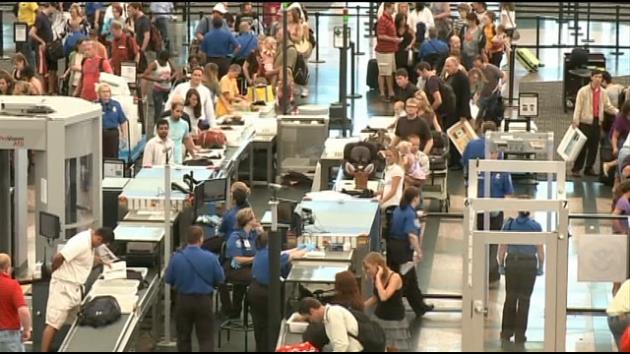UNITED NATIONS (AP) — Responding to increasing attacks on airports and aircraft, the U.N. Security Council on Thursday unanimously approved its first-ever resolution to address extremist threats to civil aviation and urge beefed-up security.
The U.N.’s most powerful body called for stepped up screening and security checks at airports worldwide to “detect and deter terrorist attacks.” And it called on all countries to tighten security at airport buildings, share information about possible threats, and provide advance passenger lists so governments are aware of their transit or attempted entry.
“The Security Council has delivered a resounding call to action for the international community,” said Britain’s Foreign Secretary Boris Johnson. “This is the first U.N. Security Council resolution ever to focus on the threats by terrorists to civil aviation and it demonstrates our joint resolve to protect our citizens from an escalating danger.”
The resolution reflected growing global anxiety following attacks on airplanes and airports from Ukraine, Egypt and Somalia to Brussels and Istanbul.
While aviation security has improved, Johnson said the recent tragedies demonstrate “the urgency of our task” and the dangers posed by “terrorists who probe relentlessly the chinks in our collective armor.”
The British-drafted resolution expresses the council’s concern “that terrorist groups continue to view civil aviation as an attractive target, with the aim of causing substantial loss of life, economic damage” and air links between countries.
Fang Liu, Secretary General of the International Civil Aviation Organization, told the council before the vote that there are currently over 100,000 daily flights carrying 10 million travelers, which adds up to 3.5 billion passengers per year plus “one-third of the world’s trade by value” carried by planes.
She stressed that “the worldwide air transport network will double its volume of flights and passengers by 2030” which makes the protection of civil aviation from “acts of unlawful interference” one of ICAO’s highest priorities.
Deadly suicide bombings this year at airports in Brussels and Istanbul are “a tragic reminder of the enormous challenges faces in security public areas, the inseparability of aviation security and national security, and of the significant socio-economic consequences of terrorism,” Liu said.
Following those attacks, she said ICAO developed new proposals aimed at enhancing security at airport facilities which are expected to be adopted by the agency’s governing council at a meeting in November. From 2017-19, ICAO will be developing a new Global Aviation Security Plan and among its goals are to provide greater technical assistance to countries and “accelerate the development of human resources.”
While the implementation of current aviation security standards are steadily improving both globally and regionally, Liu ticked off a list of threats that need urgent attention. They include small weapons carried by passengers, homemade bombs concealed in baggage and cargo, shoulder-fired ground-to-air missiles, security on the ground, cybersecurity, drones and insider threats.
Jeh Johnson, the U.S. Homeland Security secretary, welcomed the resolution and reminded the council of Sept. 11, 2001 when hijackers took control of civilian aircraft and attacked New York’s World Trade Center and the Pentagon in Washington. A third attack was thwarted by passengers who all died when the plane crashed in Pennsylvania.
“I regard aviation security today as an urgent matter,” he said. “The reality is today there is a continuing threat to aviation security including the terrorist threat.”
As for things to do, Johnson said the United States is seeking more agreements with other states to put air marshallson commercial flights to and from the United States.
Copyright 2024 The Associated Press. All rights reserved. This material may not be published, broadcast, rewritten or redistributed.

